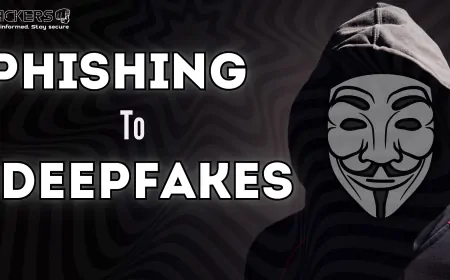Why Should Cybersecurity Laws Also Protect Human Emotions?
Picture this: You wake up to a notification that your personal data has been stolen in a massive cyber breach. Your heart races, sleep evades you, and a wave of anxiety washes over as you worry about identity theft or worse. This isn't just a financial headache; it's an emotional storm. In our digital age, where cyber threats loom large, it's time to ask a crucial question: Why should cybersecurity laws extend their reach to safeguard not just our data, but our feelings too? This blog dives into the intersection of technology, law, and human psychology, showing how protecting emotions could reshape our approach to online safety. We'll explore real impacts, legal gaps, and forward-thinking solutions in a way that's easy to grasp, even if you're new to these topics.

Table of Contents
- Understanding Cybersecurity and Its Human Side
- The Emotional Toll of Cyber Threats
- Current Cybersecurity Laws: What's Covered and What's Not
- Real-Life Case Studies of Emotional Harm
- Why Laws Should Protect Human Emotions
- Proposed Changes to Cybersecurity Laws
- Benefits of Including Emotional Protection
- Challenges and Potential Criticisms
- Future Trends in Emotional-Focused Cybersecurity
- Conclusion
- Frequently Asked Questions
Understanding Cybersecurity and Its Human Side
Cybersecurity refers to the practices and technologies used to protect computers, networks, and data from unauthorized access or attacks. Think of it as a digital shield against hackers, viruses, and other online dangers. But beyond the technical aspects, there's a human element that's often overlooked: our emotions.
Emotions drive how we interact with technology. Fear might make us click on a suspicious link in a panic, or trust could lead us to share too much online. Cybercriminals know this and exploit feelings like urgency or curiosity to launch attacks. For instance, phishing emails often play on fear of missing out or authority to trick people into revealing information.
Why does this matter? Because when a breach happens, the fallout isn't just lost data; it's shattered peace of mind. Studies show that victims experience heightened anxiety and stress, similar to physical theft. This emotional layer adds complexity to cybersecurity, making it clear that laws need to address more than just financial losses.
In simple terms, integrating emotional protection means recognizing that humans are not just users; we're beings with feelings that influence and are influenced by digital security. This shift could lead to more compassionate policies that help people recover not only their data but their well-being too.
As we delve deeper, we'll see how ignoring emotions leaves gaps in protection, allowing harm to persist unchecked.
The Emotional Toll of Cyber Threats
Cyber attacks don't just steal information; they rob people of their sense of security. Common emotional responses include anxiety, anger, frustration, and even depression. When personal details are exposed, victims often feel violated, leading to sleepless nights and constant worry about potential misuse.
For example, a data breach can trigger fear of identity theft, where someone uses your info for fraud. This fear isn't baseless; it stems from real risks that can linger for years. Research indicates that negative emotions like annoyance and a sense of being cheated are widespread after such incidents.
Beyond individuals, these threats affect communities. Cyberbullying, a form of online harassment, can lead to low self-esteem and isolation, especially among young people. Statistics from 2025 reveal that two-thirds of cyberbullying victims report negative impacts on their self-perception. In workplaces, ransomware attacks cause stress and burnout among staff dealing with the aftermath.
The psychological impact extends to cybersecurity professionals too. They face high-pressure environments, leading to mental health issues like exhaustion. One report highlights how prolonged disruptions from attacks contribute to absenteeism and lower productivity.
Understanding this toll is key. It shows that cyber threats are human problems, not just technical ones. Laws that ignore this miss the full picture, leaving people to cope alone with invisible wounds.
Current Cybersecurity Laws: What's Covered and What's Not
Today's cybersecurity laws focus mainly on protecting data and infrastructure. In the U.S., acts like the Cybersecurity Act of 2015 set standards for sharing threat information and securing health data. The EU's GDPR emphasizes privacy rights, requiring companies to report breaches quickly.
These laws address financial harms, like fines for non-compliance, and mandate protections against unauthorized access. However, they rarely mention emotional well-being. For instance, while GDPR allows compensation for non-material damage, proving emotional harm is tough.
Some progress exists. The 9-8-8 Lifeline Cybersecurity Responsibility Act, reintroduced in 2025, aims to report vulnerabilities affecting mental health crisis lines. This nods to emotional aspects, but it's narrow.
Gaps are evident in handling psychological harms from breaches. Legal scholars note that current frameworks lack robust approaches to these issues. Victims struggle to claim for anxiety or stress without clear physical or financial loss.
To highlight differences, here's a table comparing key aspects of current laws versus what could be improved for emotional protection:
| Aspect | Current Laws | With Emotional Protection |
|---|---|---|
| Focus | Data and financial security | Includes psychological well-being |
| Compensation | Mainly for tangible losses | Covers emotional distress |
| Reporting | Breach notifications | Includes impact assessments on mental health |
| Training | Technical skills | Emotional resilience education |
This comparison underscores the need for evolution in laws to fully protect people.
Real-Life Case Studies of Emotional Harm
Let's look at actual events to see the human cost. In the 2023 Change Healthcare breach, hackers disrupted services, causing widespread anxiety among patients unable to access care. Many reported stress from delayed treatments, highlighting emotional fallout.
Another example is the Equifax data breach in 2017, affecting millions. Victims experienced ongoing fear of fraud, leading to lawsuits claiming emotional distress. Courts have recognized anxiety as a harm, but compensation varies.
Cyberbullying cases also illustrate this. In 2025 reports, survivors described feelings of injustice and reduced happiness during incidents. One study found victims suffering from trauma and paranoia.
Businesses aren't immune. After a ransomware attack on a school district, students and staff faced emotional distress from privacy losses and disrupted learning. These stories show that emotional harm is real and widespread, urging legal updates.
Why Laws Should Protect Human Emotions
Protecting emotions in cybersecurity laws makes sense for several reasons. First, cyber attacks exploit human psychology, like using fear in scams. Laws that address this can promote education on emotional manipulation.
Second, the psychological harms are tangible. Victims often face long-term anxiety, eroding trust in digital systems. Recognizing this in law encourages companies to prioritize user well-being.
Third, it aligns with broader human rights. Privacy is a right, and breaches violate it emotionally. Laws should evolve to include non-material damages more explicitly.
Finally, it fosters a holistic approach. By considering emotions, we build resilient societies where people feel safe online, reducing overall vulnerability.
Proposed Changes to Cybersecurity Laws
To incorporate emotional protection, lawmakers could start by defining psychological harm in statutes. This includes anxiety or stress from breaches as compensable damages.
Mandate impact assessments: Companies should evaluate emotional risks in security plans, similar to environmental reviews.
Enhance reporting: Require notifications to include resources for mental health support post-breach.
Promote training: Include modules on emotional intelligence for cybersecurity pros.
International cooperation: Harmonize laws to address global threats, ensuring emotional aspects are covered.
These changes would make laws more comprehensive and user-centered.
Benefits of Including Emotional Protection
Adding emotional safeguards brings many advantages. It could reduce victim suffering by providing quicker support, like counseling access.
For businesses, it encourages proactive measures, potentially lowering breach rates through better human-focused security.
Society benefits from increased trust in digital platforms, boosting economic activity online.
Professionals in the field might see less burnout, as laws promote well-being initiatives.
Overall, it creates a more empathetic digital world.
Challenges and Potential Criticisms
Not everyone agrees with this approach. Measuring emotional harm is subjective, making legal proofs difficult.
Critics worry about overregulation, stifling innovation or burdening small businesses.
Enforcement poses issues: Who assesses emotional impacts, and how?
Despite these, solutions like standardized guidelines could help. Balancing protection with practicality is key.
Future Trends in Emotional-Focused Cybersecurity
Looking ahead, AI could detect emotional manipulation in attacks. Laws might integrate mental health metrics into security standards.
With rising cyber threats, 2025 projections show trillions in costs, underscoring the need for holistic defenses.
Collaborations between tech, law, and psychology will drive progress, making emotional protection standard.
Conclusion
To wrap up, cybersecurity laws must evolve to protect human emotions because cyber threats affect more than data; they touch our inner lives. From anxiety caused by breaches to stress on professionals, the emotional impacts are profound and deserve legal recognition. By addressing gaps in current laws, incorporating case lessons, and proposing changes, we can build a safer, more compassionate digital landscape. The benefits outweigh challenges, promising a future where online security supports overall well-being. Let's advocate for laws that see the human behind the screen.
Frequently Asked Questions
What is cybersecurity?
Cybersecurity involves protecting digital systems and data from threats like hacking or viruses.
How do cyber attacks affect emotions?
They can cause anxiety, fear, anger, and stress due to privacy loss or potential harm.
Why are current laws insufficient?
They focus on financial and data protection but often ignore psychological impacts.
Can emotional harm be compensated legally?
In some cases yes, but proving it is challenging without clear guidelines.
What is cyberbullying?
It's online harassment that leads to emotional distress like low self-esteem.
How can laws protect emotions?
By defining psychological harms and mandating support resources post-breach.
Are there statistics on mental health from cyber incidents?
Yes, many victims report negative self-perception and increased stress.
What role do emotions play in cyber attacks?
Criminals exploit feelings like fear to trick people into mistakes.
Why consider professionals' emotions?
They face burnout from high-stress roles in handling threats.
Can AI help with emotional protection?
Yes, by detecting manipulation patterns in attacks.
What are non-material damages?
Harms like emotional distress, not tied to financial loss.
How does GDPR relate?
It allows claims for non-material damage but application varies.
What is a data breach?
Unauthorized access to sensitive information, often leading to emotional worry.
Why is trust important in cybersecurity?
Breaches erode trust, making people hesitant to use digital services.
Can schools be affected emotionally?
Yes, attacks disrupt learning and cause stress for students and staff.
What is phishing?
An attack using deceptive emails to exploit emotions like urgency.
How to recover emotionally from a breach?
Seek support, monitor accounts, and practice self-care.
Are there bills addressing this?
Yes, like the 9-8-8 Lifeline Act for mental health lines.
Why is empathy key in security?
It helps understand human behavior to build better defenses.
What's the future for these laws?
More integration of mental health in cybersecurity standards.
What's Your Reaction?










































































